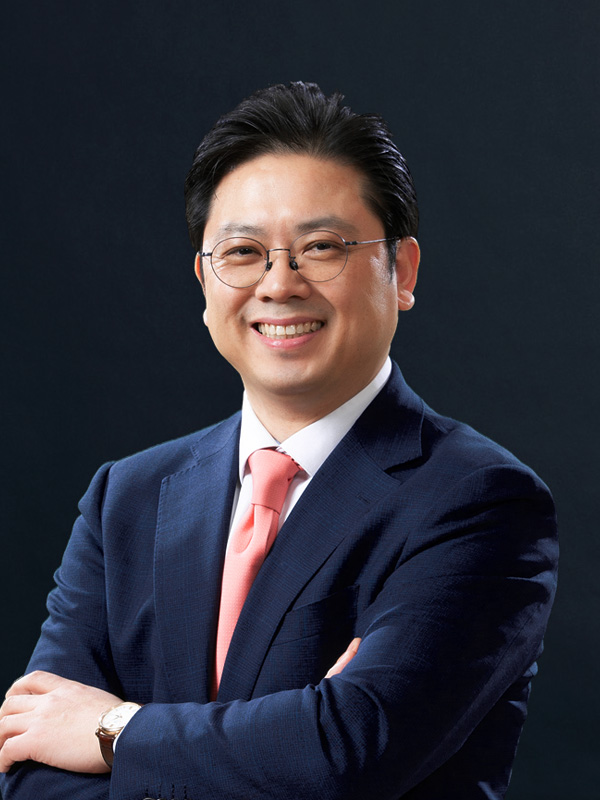On June 23, 2021, the Financial Services Commission (“FSC”) announced that it would be amending the enforcement decree (the “Enforcement Decree”) of the Financial Investment Services and Capital Markets Act (“FSCMA”) to restructure the private equity funds (“PEFs”) system and strengthen protections for investors. These proposed amendments (the “Proposed Amendments”) are meaningful because they reflect matters delegated to the Enforcement Decree by the FSCMA which was amended in March 2021 and provide clarity regarding certain questions of interpretation and application of the amended FSCMA.
Key amendments affecting institutional PEFs are as follows.
1. Scope of “Institutional PEF Investors”
The previous FSCMA classified PEFs into two categories based on their “operational purpose” (e.g., a specialized-investment-type fund (hedge fund) or management-participation-type fund (private equity fund)). The amended FSCMA now classifies PEFs as either institutional PEFs or general PEFs depending on their investors, and delegates matters relating to the scope of investors permitted to invest in institutional PEFs to the Enforcement Decree. The Proposed Amendments specify the finalized scope of such permitted “Institutional PEF Investors” as follows:
- State (i.e., the Republic of Korea), Bank of Korea;
- Financial companies (banks, Korea Development Bank, Industrial Bank of Korea, Export-Import Bank of Korea, National Agricultural Cooperative Federation (NACF/Nonghyup), National Federation of Fisheries Cooperatives, insurance companies, financial investment business entities, securities finance companies, merchant banks, fund brokerage companies, financial holdings companies, specialized credit finance companies, Korea Federation of Savings Banks, National Forestry Cooperative Federation, Korea Federation of Community Credit Cooperatives, National Credit Union Federation of Korea, and any equivalent foreign financial institutions);
- Special corporations (Korea Deposit Insurance Corporation/K&RC, Korea Asset Management Corporation, Korea Housing Finance Corporation, Korea Investment Corporation, Korea Financial Investment Association, Korea Securities Depository, Electronic Registration Agency, Korea Exchange, Financial Supervisory Service, Korea Credit Guarantee Fund, Korea Technology Finance Corporation, any fund established in accordance with specialized statute and the corporation that manages and operates such fund, any corporation that operates a mutual-aid business in accordance with specified statute, and local governments);
- Institutional PEFs;
- Listed corporations (excluding KONEX) registered with the Korea Financial Investment Association (“KOFIA”) as limited partners of institutional PEFs, and for which (i) the balance of financial investment instruments is at least KRW 10 billion (KRW 5 billion for corporations subject to external audit), and (ii) documents submitted in respect of (i) are not more than two years old;
- Foreigners equivalent to professional investors (including individuals); and
- Executives or managers of a general partner (“GP”) (only investments of KRW 100 million or more are eligible).
Notably, a key change to the scope of Institutional PEF Investors is that certain listed corporations (excluding KONEX) will now be recognized as institutional investors and be able to invest in institutional PEFs, if they: (i) are listed on the KOSPI or KOSDAQ markets, (ii) possess a balance of financial investment instruments of at least KRW 10 billion (KRW 5 billion if subject to external audit), supported by relevant data, (iii) are registered with the KOFIA as limited partners of institutional PEFs and (iv) continue to maintain this status by submitting requisite documents regarding the balance of their financial investment instruments every two years.
It is also worth noting that collective investment schemes other than institutional PEFs are explicitly excluded from the scope of Institutional PEF Investors. Following the amended FSCMA’s restructuring of the PEF classification system, there have been discussions in the industry around ways to form general PEFs to allow those who fall outside the scope of Institutional PEF Investors to nonetheless invest in institutional PEFs – much like under the previous FSCMA where specialized-investment-type funds (hedge funds) invested in management-participation-type funds (private equity funds) as limited partners. However, the Proposed Amendments explicitly exclude collective investment schemes other than institutional PEFs. This is in line with the legislative intent behind the amended FSCMA, which seeks to limit the scope of Institutional PEF Investors to only those investors possessing requisite expertise and risk management capabilities.
2. Calculating the Number of Investors Permitted to Invest in a Multi-tiered PEF
The amended FSCMA increases the number of investors permitted to invest in a PEF from 49 to 100 and, as mentioned above, institutional PEFs are the only private collective investment schemes that fall within the permissible scope of Institutional PEF Investors. The amended FSCMA delegates the calculation of the permitted number of investors in a multi-tiered PEF to the Enforcement Decree, and the Proposed Amendments provide the following calculation methodology:
IF (i) an institutional PEF invests in more than 10% of the collective investment securities of another institutional PEF (“Fund A”), or (ii) the GP of Fund A operates and manages more than two other institutional PEFs and such funds acquire at least 30% of Fund A’s collective investment securities (but individually, such acquisitions are less than 10% of Fund A’s collective investment securities), THEN the number of investors in these other institutional PEFs shall be added to the calculation of the number of investors in Fund A. In other words, it is important to note that in case of (ii) above, if multiple subsidiary-funds collectively acquire more than 30% in their parent-fund (but less than 10% individually), then the number of investors in each subsidiary-fund will be included when calculating the number of total investors of the parent-fund.
3. Management of PEFs Operated by Financial Companies (excluding Financial Investment Business Entities and New Technology Venture Capitalists)
The amended FSCMA delegates the management of PEFs operated by financial companies to the Enforcement Decree and the Proposed Amendments confirm that where financial companies (excluding financial investment business entities and new technology venture capitalists) manage an institutional PEF as a GP, they can manage the assets of such fund only through management-participation-type investments (as under the previous FSCMA). Accordingly, when managing institutional PEFs as GPs, financial companies (excluding financial investment business entities and new technology venture capitalists) should comply with the requirements under the previous FSCMA that were applicable to the management of assets of management-participation-type funds (i.e. equity investments of at least 50% within two years, investments in at least 10% of voting shares or shares with the right to appoint directors, 6-month holding period, prohibition of loans, etc.).
4. Strengthened Supervision of GPs
To facilitate the regular supervision of GPs of institutional PEFs, the amended FSCMA has introduced an obligation to register changes and has granted the Financial Supervisory Service the power and authority to inspect, audit and issue orders to GPs. Accordingly, the Proposed Amendments require GPs to (i) report changes (other than minor changes) to the FSC within two weeks of their occurrence, and (ii) submit to the FSC annual financial statements within 45 days of the end of the applicable financial year.
In addition, the Proposed Amendments require that institutional PEFs retain two or more fund managers who are full-time executives of the GP to manage the GP. The specific qualification requirements for these fund managers have been delegated to the administrative rules of the FSCMA. Amendments to the administrative rules of the FSCMA have not yet been announced but based on the FSC’s announcement of the Proposed Amendments in June, it is anticipated that the amended administrative rules will require fund managers to have at least two years of management experience (3 years for GPs) or at least three years’ experience of working in a financial institution and to complete training offered by the KOFIA. Accordingly, going forward, these requirements will need to be satisfied to register as a GP of an institutional PEF, and those GPs who have already registered under the previous FSCMA will have a one-year grace period to ensure that these requirements are satisfied.
Furthermore, the Proposed Amendments have introduced fundamental business practices in support of the regulations on the management of institutional PEFs. Accordingly, persons other than fund managers are prohibited from managing institutional PEFs and, except in the case of investment by way of management-participation, the roles of employees in charge of managing collective investment securities of an institutional PEF and employees managing the acquisition and disposal of target assets must be clearly distinguished and delineated. It is particularly important that, except in the case of investment by way of management-participation, GPs of institutional PEFs do not concurrently manage the assets of the fund and participate directly in the acquisition and disposal of the assets. This reflects the legislative intent to prevent the occurrence of illegal activities such as the use of undisclosed information that can arise when such tasks are undertaken without delineation and thereby stabilize the financial market and maintain a transparent transaction system.
5. Consolidation of PEF Management Regulations
The Proposed Amendments prohibit private debt funds from providing loans directly or indirectly (in association with credit businesses or P2Ps) to individuals, adult entertainment businesses and businesses in the gambling industry. In addition, unless the purpose of the private debt fund is to acquire and operate domestic/foreign real estate or special assets, the scope of investors of private debt funds are limited to institutional PEFs that can invest in financial companies, special corporations, and institutional PEFs. Furthermore, the Proposed Amendments prohibit the establishment of PEFs that invest more than 90% in private debt funds. These amendments are reflective of the current administrative guidelines on lending activities by specialized-investment-type funds (hedge funds).
Moreover, in respect of general PEFs, the use of special purpose companies (“SPCs”) is permitted, provided that such SPCs have not been established or are not being used for the purpose of avoiding applicable management regulations. As a result, it is anticipated that going forward the ability to establish corporations from a fund’s existing capital or manage assets through such newly established corporations will be limited and the management of assets will only be possible through SPCs established under the amended FSCMA. That said, to promote foreign investment opportunities of PEFs, the Proposed Amendments exempt foreign companies (where the value of assets held in Korea are less than 30% of the total assets owned by the foreign company) from the above restriction and allow them to use not only SPCs but also corporations to manage assets; thus, for foreign investment purposes, the establishment of offshore SPCs is explicitly permitted.
6. Timeline
The Proposed Amendments will undergo a 40-day legislative notice period (from June 23, 2021 to August 2, 2021); thereafter, they will be subject to regulatory review, presented and reviewed by the Ministry of Government Legislation and are expected to finally come into effect on October 21, 2021, together with the amended FSCMA.

